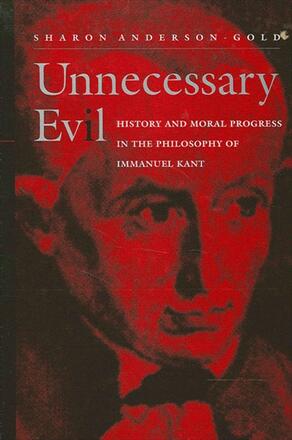
Unnecessary Evil
History and Moral Progress in the Philosophy of Immanuel Kant
Alternative formats available from:
Demonstrates the systematic connection between Kant's ethics and his philosophy of history.
Description
No philosopher has been more committed to the idea of the moral progress of humanity than Immanuel Kant. But is this idea of the moral advancement of the species compatible with the individualist basis of Kantian ethics? Do individuals have obligations to contribute toward the welfare of future generations? Here, Sharon Anderson-Gold affirms the compatibility of Immanuel Kant's philosophy of history and ethics by reversing the individualistic reading of the nature of virtue and vice. Arguing that Kant's definition of radical evil as a characteristic of the social condition of humanity makes virtue a collective task, she concludes that Kant's views on the moral progress of the species are essential to a proper appreciation of the collective character of moral goals and the social context of both virtue and vice. The author also expands the role of reflective judgment in the development of a cosmopolitan discourse specifying duties supporting international institutions, human rights and global economic justice. She argues that reflective judgments contain both phenomenological and normative components, making a moral evaluation of social institutions possible, thereby providing an orientation or guide for individual action.
Sharon Anderson-Gold is Associate Professor of Philosophy at Rensselaer Polytechnic Institute.
Reviews
"Artfully reconciling Kant's ethics and philosophy of history, this well-written book makes an important contribution to understanding the former and is highly recommended. " — Library Journal
"This book will change the way future generations look at Kant's work. It is a rare book that gives both a careful reading of the past and a visionary glimpse of the future. Few books about the past can claim to be a doorway into the future. " — Thomas Auxter, author of Kant's Moral Teleology
"The book is significant because it carries further a new approach to Kant's moral, political, and historical writings, which exploits some insights that an exploration of reflective judgment and orientation have made possible. " — Rudolf A. Makkreel, author of Imagination and Interpretation in Kant: The Hermeneutical Import of the Critique of Judgment